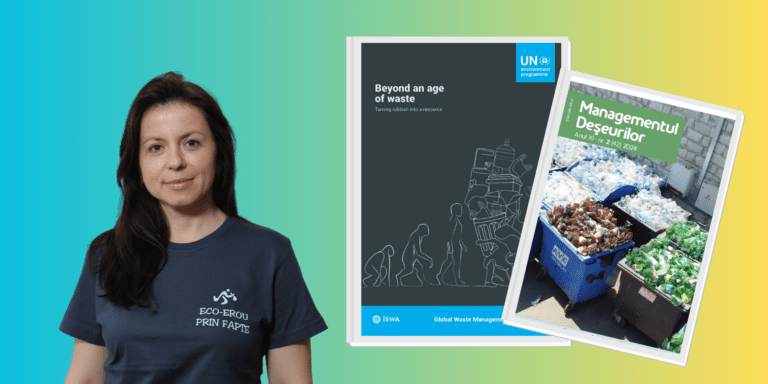The European Parliament revised the Regulation on packaging and packaging waste!
Details
On October 24, 2023, the Committee for the Environment, Public Health and Food Safety of the European Parliament (ENVI) voted on the report on the Regulation on Packaging and Packaging Waste, this being a response to the proposal originally issued by the European Commission in November 2022. After months of difficult negotiations, and under strong pressure from the industry, the Commission accepted the Compromise Amendments proposed by the Belgian Rapporteur Frédérique Ries, a member of Renew MEP. Here are the main results of the vote:
- RE

Compromise amendment 10 on reuse and 12 on the restriction of single-use packaging were adopted by a very small majority (41 in favor, 39 against, respectively 42 in favor, 38 against). Thus, any plastic bags weighing less than 15 microns, which are not required for reasons of hygiene or as primary packaging to prevent waste in bulk food products, are to be banned. It is important to mention the restriction of single-use packaging for the HORECA sector. The new amendment sets clear restrictions on the sale of single-use packaging and imposes a ban on all single-use packaging in restaurants. Final distributors of drinks and takeaways in the HORECA sector are expected to allow consumers to bring their own container as a reusable packaging solution.
With the adoption of reusability targets in compromise amendment 10, it is proposed that 50% in packaging for large appliances from economic operators, including online platforms, be reusable. The drive to include cardboard in these reuse targets is a significant step towards improving reuse policies.
However, there are also disadvantages, as the re-use targets for the take-away sector and for wine have been removed and the regulation still contains too many loopholes for Member States or operators who are hesitant to implement some measures correctly (Article 26).
- Health and chemicals
Compromise amendment 6 on requirements for substances in packaging was adopted. What does this mean for packaging manufacturers? They will have to report in the technical documentation all substances of concern, as well as the prohibition of the use of PFAS and BPA in food packaging. These "forever" chemicals are added to food contact packaging - often to make paper and cardboard packaging fire or water resistant. These substances have been associated with various negative effects on human health. In addition, manufacturers will have to address the negative environmental impact of microplastics.
- Recycled content and bio-based plastics
Compromise Amendment 8 was passed, meaning that the credit-based system would not be used. The credit-based system allows credits to be created for packaging that exceeds recycled content targets and credits to be transferred to packaging that does not meet the required targets, effectively compromising any traceability. In its current form, the recycled content amendment goes in the right direction, as it guarantees a minimum share of recycled content in new products, as well as the environmental impact of the recycling process itself.
Likewise, compromise amendment 25 was adopted, considered a step backwards by environmental experts. The given amendment supports the fact that bio-based plastics (virgin plastic) can be used within the recycled content targets. This means that the new amendment does not make a difference between "virgin" and recycled plastic.
- Separate collection and sorting of mixed waste
The new requirements voted require Member States to take the necessary measures to ensure the separate collection of 90% from recyclable materials by 1 January 2029. This can be achieved through one of the measures mentioned in the Regulation on Packaging and Packaging Waste. Regarding the sorting of waste that is not collected separately, the text says that Member States that cannot ensure separate collection at source of packaging waste, they can ensure sorting before disposal, or they can opt for energy recovery operations for to remove the packaging intended for recycling.
The next steps involve a plenary (final) vote in the European Parliament on 20 November 2023, including the adoption of a general approach by member states in December and the need for EU institutions to reach an agreement before the European elections in spring 2024.
Related articles
O treime dintre alimentele produse la nivel mondial nu ajung în consumul uman din cauza pierderilor
A new week in the Iulie Fără Plastic Campaign, respectively a new topic - The truth about
According to the Global Waste Management Outlook 2024 (GWMO 2024), if the current waste management system does not
According to the latest report of the Circular Economy Foundation, entitled "The Circularity Gap Report 2024" (ro: The Report on
On November 17, 2023, AO "E-Circular Training and Consulting Center" in partnership with
In the period from April to September 2023, the E-Circular Training and Consulting Center AO within the Project "Improving skills
AO E-Circular Training and Consulting Center this year enjoys partner status
By Order of the Ministry of Education and Research of the Republic of Moldova from June 2023, AO Centrul de
As we become more aware of the devastating effect plastic has on the environment
In the context of World Environment Day, AO Training and Consulting Center "E-CIRCULAR" and AO Verde









